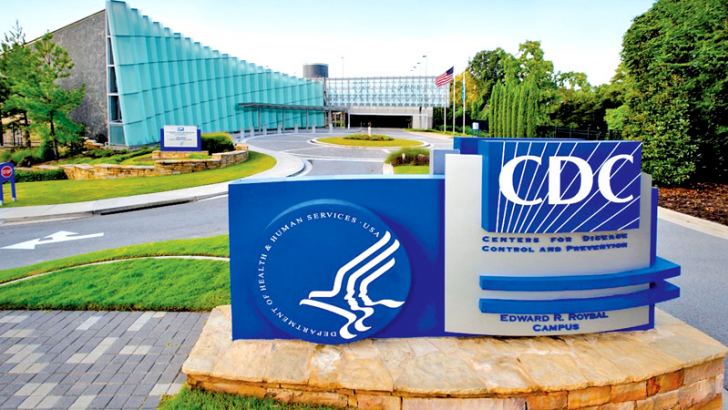When it comes to the cruise line industry, Florida has long been a leader. This past year, however, Florida has become a notable laggard. As an example, Florida passed a law that requires a random drug test of all guest of a cruise ship. In April, Florida’s key role in the ’90s cruise-ship disaster, the “Norwegian Dawn”, is still fresh in the minds of many.
On May 24, 2019, Florida officials announced that they would be suing the Centers for Disease Control and Prevention (CDC) to investigate the state’s response to the Ebola outbreak in 2014, which was the largest in US history. The lawsuit comes after the CDC admitted that it had misinformed state officials regarding the risk of Ebola on US soil and had failed to train enough of its personnel to prevent a second Ebola outbreak.
A landmark lawsuit which has been in the making for the last 5 years has finally been settled with the Florida Attorney General’s Office. The crux of the matter centers around the CDC’s handling of the 2009 outbreak of the H1N1 flu virus. The crux of the matter centers around the CDC’s handling of the 2009 outbreak of the H1N1 flu virus.. Read more about florida vs cdc lawsuit update and let us know what you think.The U.S. Centers for Disease Control and Prevention’s order to sail only under certain conditions appears, at least on the surface, to be a major victory for Florida Governor Ron DeSantis and his efforts to restore unrestricted cruise ship travel in Florida as soon as possible.
Let’s take a closer look at this 124-page court decision, examine some of the judge’s arguments, and see what they might mean for the cruise industry.
The judge was very critical of the CDC

Judge Stephen Merriday of the Florida District Court did not hesitate and made it clear that he found most of the CDC’s general arguments unpersuasive.
Merriday’s decision refers to repeated complaints from cruise industry executives and the International Cruise Lines Association that the CDC’s conditional sailing orders and ever-changing policies make a return to cruise travel impossible.
The following is an excerpt from the court’s decision (italics in the article):
After the CDC issued a technical guidance document dated 5. May 2024… released, complains Norwegian Cruise Line CEO: I seriously doubt any ship will leave a US port in July. August is also at risk, all because of different guidelines from the Centers for Disease Control and Prevention….. What we had yesterday was anything but a clear path to reopening.
Naval Quarantine Laws of the 18th Century

The judge also turned some of the CDC’s arguments in support of its cruise ship regulations against the agency itself, including an obscure 1796 law on federal intervention in maritime operations related to quarantine and infection control, which the CDC cited as precedent for its involvement in the case.
Merriday notes that this law, which was repealed in 1799, effectively required U.S. government agencies to support the states’ quarantine activities rather than nationalize or take over their own quarantine powers.
The law the CDC cites to demonstrate federal involvement actually allows the president to send federal officials to assist only in the enforcement of the state’s quarantine law.
The law of 27. May 1796, 4 Cong. Ch. 31, 1 Stat. 474 (1796) (repealed 1799).
And although the CDC notes that Congress has replaced this law with a federal inspection system for marine quarantines. This federal inspection system – originally established by the Maritime Hospital Service, the forerunner of the Public Health Service – essentially provided medical care for sick sailors and strengthened the federal government’s position as an aid to the states.
For the record, after a series of reorganizations, the Public Health Service now consists of eight agencies, including the CDC.

Merriday rejects nearly all of the CDC’s legal arguments, pointing out that Florida is authorized to file its lawsuit because it is threatened with serious and irreparable harm if the summer 2024 cruise season does not go forward.
Florida is at imminent risk of continuing harm that may be attributable to the Conditional Swimming Order and that may be recoverable if that Order is vacated in whole or in part. In short, Florida has the kind of self-interest in the outcome of a process that creates the kind of specific contradictions that sharpen the presentation of issues.
In his decision, the judge was highly skeptical of the CDC’s efforts, noting that under the conditional swimming ban, the CDC reserves the right to revoke the conditional swimming ban because the CDC took little action during the COVID-19 outbreak.
Merriday supports Florida’s claim that it’s the CDC that makes things happen.
Does this court decision mean an immediate return to unrestricted shipping from Florida?

Carnival Dream berthed in Port Miami
Merriday issued the restraining order because he said Florida would likely win on most issues if the case went to trial.
He postponed his ban until July 18, 2024, and gave the CDC until July 2 to make more tailored recommendations and restrictions.
So will all cruise ships be fully operational again on July 18, with no restrictions on vaccinations or testing, no mandatory masks or social distancing, and the same onboard experience as before the shutdown? This seems unlikely.
Although it is unlikely that the data collected for the 18. Test flights scheduled for July or later will continue, but the cruise lines will retain much of the process and infrastructure they are putting in place to resume operations this summer.
Vaccination requirements (or at least strong encouragement of passengers to be vaccinated), some level of screening before and during the cruise, and quarantine protocols for passengers or crew who test positive are likely to remain in place for some time.
Although cruise ships dock in the United States, they call at hundreds of ports around the world, each with different public health regulations and restrictions.
While in Florida it doesn’t matter if a cruise passenger is vaccinated upon embarkation, on a Caribbean island like St. Thomas it will likely matter that the cruise passenger is vaccinated upon departure from the ship. And cruise lines will want to avoid another media frenzy like the Diamond Princess saga in the early 2024s.

(Photo courtesy of Princess Cruises)
Headlines about yet another sick cruise ship unable to find port would be a devastating – perhaps even fatal – blow to the cruise industry’s public relations. The cruise lines will likely do everything they can to prevent another incident. The CDC has recently been sued by the State of Florida and the ACLU, with the allegations that the CDC has been using a “secret database” to allow it to track the travel and check-in records of U.S. citizens who are taking cruises.
The cruisers allege that this database has been used to track them without their consent, and point to the fact that the CDC is the only agency that receives “captive audience” access to an automated call center to ask about travel plans.. Read more about class action lawsuit against cdc and let us know what you think.




